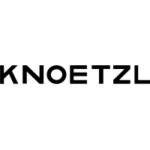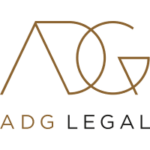-
What are the key financial crime offences applicable to companies and their directors and officers? (E.g. Fraud, money laundering, false accounting, tax evasion, market abuse, corruption, sanctions.) Please explain the governing laws or regulations.
The key financial offenses applicable to companies and their directors are not codified in a single code under French law. Rather, they are spread across 5 codes:
- French Criminal Code:
- Offenses under ordinary law: fraud (Art. 313-1), breach of trust (Art. 314-1), money laundering (Art. 324-1), forgery (Art. 441-1);
- Financing of terrorism (Art. 421-2-2); and
- Breaches of the duty of integrity, such as bribery of private individuals (Art. 445-1 and 445-2) or public officials (Art. 432-11 and 433-1), influence peddling (Art. 432-11 and 433-1), unlawful taking of interest (Art. 432-12), favoritism (Art. 432-14) and embezzlement of public assets by public officials (Art. 432-15).
- French Monetary and Financial Code: insider trading (Art. L. 465-1 et seq.) and price manipulation (Art. L. 465-3-1 et seq.);
- French Commercial Code: misuse of corporate assets (Art. L. 241-3, 4° and L. 242-6, 3°), distribution of fictitious dividends (Art. L. 242-6, 1°), presentation of false accounts (Art. L. 241-3, 3° and L. 242-6, 2°), bankruptcy (Art. L. 654-2);
- French Tax Code: tax fraud (Art. 1741); and
- French Customs Code: smuggling (Art. 417) and customs laundering (Art. 415).
-
Can corporates be held criminally liable? If yes, how is this determined/attributed?
Except for press law, companies may be held liable for any criminal offense.
There are two cumulative conditions for holding a legal entity liable: the offense must have been (i) committed by an organ or representative of the company, (ii) acting on its behalf.
The representative is the person who has the de facto or de jure power of direction, management or control. Recent case law has reaffirmed the need to precisely identify the organ/representative that has committed the offense and to ensure that it was not acting on its own behalf.
The company’s liability is independent of that of the individuals: both the company and the individuals may be held liable for the same acts.
-
What are the commonly prosecuted offences personally applicable to company directors and officers?
The most commonly prosecuted financial offenses personally applicable to de jure or de facto corporate representatives (chairmen, directors, general managers) are:
- Misappropriation of corporate assets; and
- Fraudulent bankruptcy.
Corporate representatives are also often prosecuted for:
- Fraud/tax fraud;
- Breach of trust;
- Money laundering; and
- Bribery.
-
Who are the lead prosecuting authorities which investigate and prosecute financial crime and what are their responsibilities?
Prosecuting and investigating authorities:
Prosecutions are carried out by the public prosecutor, who reports directly to the Ministry of Justice. The requisite investigations are carried out by the police or the gendarmerie, under the public prosecutor’s supervision.
In most cases, a preliminary investigation is opened and conducted by the public prosecutor. At the latter’s request, the police and gendarmerie may carry out various investigative acts (searches and seizures of documents/mailboxes, questioning of various witnesses/plaintiffs, experts’ reports, wiretapping, geolocalisation, etc.).
The investigation is confidential and is strictly non-adversarial, which means that defendants and their counsel do not have access to the case file. Yet, in financial cases, at the end of the investigation, the public prosecutor often opens the investigation to adversarial observations, enabling the parties to have access to the case file and to file observations before being charged.
At the end of the preliminary investigation, the public prosecutor can either close the investigation, refer the individuals being prosecuted to a criminal court for trial or, in more complex cases, request the opening of a judicial inquiry.
In the latter case, the prosecution is conducted by an investigating magistrate, who is an independent judge responsible for investigating the case both for and against the accused. The police or gendarmerie still conduct the requisite investigation, but under the investigating magistrate’s supervision. The police and gendarmerie have the same investigative powers as in a preliminary investigation.
This time, the investigation is adversarial: the accused and their counsel have access to the entire case file and have an active role in conducting the investigation (the right to ask the investigating magistrate to perform certain investigative acts or to request nullification of certain procedural acts).
At the end of his/her investigation, the investigating magistrate can either dismiss the case or refer it to the criminal court for trial.
Specialized investigation units:
Some investigation units within the judicial police or gendarmerie, operating under the supervision of the public prosecutor or the investigating magistrate, are specialized in investigating financial crimes:
- The Central Office for Combating Bribery and Financial and Tax Offenses (OCLCIFF), which is part of the judicial police, has jurisdiction over national and international bribery cases, breaches of the duty of integrity, violations of business law, complex tax fraud and the laundering of these offenses;
- The purpose of the Central Office for the Prevention of Major Financial Crimes (OCRGDF) is to coordinate between the police and gendarmerie in cases involving money laundering, financing of terrorism and fraud; and
- The Directorate-General of Customs and Indirect Taxes (DGDDI) is responsible for prosecuting customs offenses.
The financial intelligence unit TRACFIN, operating under the authority of the Ministry of the Economy and Finance, is also involved in the fight against money laundering, financing of terrorism and tax and customs fraud.
Specialized prosecution authorities:
The Paris Public Prosecutor’s Office has nationwide jurisdiction to deal with specific offenses. The best-known specialized prosecutor is the National Financial Prosecutor’s Office (PNF), which investigates and prosecutes: (i) breaches of the duty of integrity (bribery, favoritism, influence peddling, etc.), (ii) misappropriation of public funds (aggravated tax fraud, VAT fraud, money laundering, etc.), (iii) market abuse (insider trading, dissemination of false information), and (iv) violations of competition law (abuse of a dominant position). There are also regional courts specializing in economic and financial matters that are responsible for combating organized crime and financial crimes, with jurisdiction over several districts or the whole country.
The European Union also created a European Public Prosecutor’s Office (EPPO), operational since June 1, 2021, which has jurisdiction to investigate and prosecute crimes against the EU’s financial interests including fraud, bribery, money laundering and cross-border VAT fraud (with cross-border implications).
Lastly, there are independent administrative authorities that have the power to investigate and prosecute offenses in specific areas. For instance, the Financial Markets Authority (AMF) ensures that the financial markets operate smoothly and with an accurate level of information. It can prosecute criminal offenses such as insider trading or dissemination of false/misleading information and it shares jurisdiction with the PNF. A similar authority also exists in the field of competition law (the Competition Authority) or to investigate and/or prosecute breaches of the duty of integrity in large companies above specific earnings and employee thresholds (the Anti-Corruption Agency or AFA).
-
Which courts hear cases of financial crime? Are they determined by tribunals, judges or juries?
Financial-crime cases essentially fall within the jurisdiction of the “correctional courts” (Tribunaux correctionnels: first-instance courts adjudicating misdemeanor cases), which are composed exclusively of professional judges (usually three judges, although some offenses, such as forgery, may be heard by a single judge).
As a general rule, the court having territorial jurisdiction is the court with jurisdiction over either the location where the offense was committed, where the accused lives or where he/she was arrested/is incarcerated.
-
How do the authorities initiate an investigation? (E.g. Are raids common, are there compulsory document production or evidence taking powers?)
There are three ways of discovering offenses that lead to an investigation being launched:
- A complaint by the plaintiff: filing an ordinary complaint with the police or directly with the public prosecutor, or a civil claim for damages before the investigating magistrate;
- A report from administrative authorities who have become aware of the commission of offenses during their investigations (e.g., URSSAF, DGFIP, DIRRECTE, etc.); and
- An investigation at the public prosecutor’s discretion when criminal acts have been brought to his attention by any means.
To gather evidence, the public prosecutor has extensive powers, such as:
- Questioning the parties/witnesses;
- Ordering searches and seizures of assets (documents, computer data, funds) whether in France or abroad.
As part of the investigation, police officers may only seize tangible assets related to the offense. For other seizures, they must be authorised by a custodial judge (“Juge des libertés et de la détention” or JLD). The current trend is towards massive seizures, covering virtually the whole company’s business (e.g., extraction from IT servers and e-mail systems).
- Ordering wiretaps; and
- Ordering experts’ reports on specific topics, such as accounting, financial or technical experts’ reports to analyze the seized documents/data.
Companies must be able to produce certain documents they are legally required to keep (corporate documents, accounts, contracts, etc.). Failure to comply with this statutory obligation may also constitute an offense.
-
What powers do the authorities have to conduct interviews?
Police officers, under the supervision of the public prosecutor/investigating magistrate, or the investigating magistrate him/herself, may summon any person likely to provide information.
They can question suspects, plaintiffs and witnesses separately or together.
Whatever the nature of the investigation, those summoned are required to attend, failing which they may be compelled to do so by the police.
In addition, the investigating magistrate can use coercive measures to ensure a suspect’s attendance, such as judicial warrants (search warrant, appearance warrant, summons, arrest warrant), house arrest or pre-trial detention.
Police officers may:
- Hold suspects in custody, for a maximum of 48 hours (96 hours for certain offenses), although suspects may also be questioned without being taken into custody, which is quite common in financial investigations; and
- Require witnesses to remain at the police station, for a maximum of 4 hours.
-
What rights do interviewees have regarding the interview process? (E.g. Is there a right to be represented by a lawyer at an interview? Is there an absolute or qualified right to silence? Is there a right to pre-interview disclosure? Are interviews recorded or transcribed?)
All interviews are transcribed into written minutes signed by the interviewee, who has the right to re-read it. Interviewees’ rights depend on their legal status and the stage of the investigation. In all cases, they must appear in person.
Witnesses’ and plaintiffs’ rights:
Witnesses and plaintiffs have differing rights depending on whether they are being questioned either by police officers, as part of a preliminary investigation, or by the investigating magistrate during a judicial inquiry:
- At the preliminary investigation stage, as a general rule, witnesses may leave the police station at any time. Yet, as previously mentioned, they may be required to remain only for the time strictly necessary for their interview, which may not exceed 4 hours. They may choose to remain silent.
If, during the interview, police officers find that there are reasonable grounds to suspect that the person interviewed as a witness may have committed an offense, the interview must be continued as either voluntary attendance for questioning (“audition libre”) or in police custody (“garde à vue”) .
- At the judicial inquiry stage, witnesses are required to take an oath. They cannot choose to remain silent and must answer questions asked by the investigating magistrate.
In all cases, witnesses cannot be assisted by a lawyer and may ask to be interviewed anonymously.
Victims are treated as witnesses, except that, since a reform in 2023, they now have the right to be assisted by a lawyer at all stages of the investigation.
Suspects’ rights:
In all cases, suspects being interviewed must be informed of:
- The nature, date, and location of the alleged offense;
- Their right to be assisted by a lawyer (and to have a confidential meeting with her/him before being interviewed) and, if needed, by an interpreter; and
- Their right to answer questions, make voluntary statements or remain silent.
They also have differing rights depending on whether they are being questioned in “voluntary attendance for questioning”, in police custody or in “first-appearance questioning (“interrogatoire de première comparution” or IPC), which is the initial appearance of a suspect before the investigating magistrate:
- During voluntary attendance for questioning, suspects have the right to leave the police station at any time;
- During police-custody interviews, suspects are informed of all their rights at the start of police custody, including the right to notify a relative or employer and to be examined by a doctor. They can also consult the written minutes of previous interviews; and
- Prior to the IPC, the suspects’ lawyers have access to the entire case file to prepare for the interview. After the interview, they have access to the updated file for the entire duration of the judicial inquiry.
During police custody and a judicial inquiry, and in addition to written minutes, interviews are recorded if there is a suspicion of a criminal offense or if the suspect is a minor.
-
Do some or all the laws or regulations governing financial crime have extraterritorial effect so as to catch conduct of nationals or companies operating overseas?
Regardless of the type of offense, French criminal law is applicable to criminal offenses committed by nationals or companies overseas if:
- The offender is French, and the acts are punishable under the legislation of the country where they were committed, or
- The victim of the offense is French.
In such cases, prosecution can only be initiated (i) at the public prosecutor’s request, (ii) after a complaint by the victim or an official denunciation by the authorities of the country where the acts were committed.
French law also has extraterritorial effect to prosecute:
- Certain financial offenses (such as fraud, breach of trust or bribery) when they have affected the European Union’s budget or its institutions.
Moreover, the 1997 OECD Convention on Combating Bribery of Foreign Public Officials in International Business Transactions specifies that, when more than one State party has jurisdiction over the offense of bribery of foreign public officials, the parties involved shall consult to determine the most appropriate jurisdiction for prosecution; and
- Financing of terrorism, since the French Code of Criminal Procedure provides that French courts have universal jurisdiction over the financing of terrorist acts for the purposes of the 1999 International Convention for the Suppression of the Financing of Terrorism.
Lastly, most serious financial offenses can also be prosecuted in France even though they have no connection with French territory (i.e., if they were committed abroad by a foreigner against a foreigner), when extradition of the offender has been refused by France on certain limited grounds.
In any case, no prosecution may be brought against a person who can prove that he/she was in the end tried abroad for the same acts and, in the event of conviction, that his/her sentence has been served or is time-barred.
-
Do the authorities commonly cooperate with foreign authorities? If so, under what arrangements?
Yes, French authorities commonly cooperate with their foreign counterparts to tackle financial crime, under the following arrangements:
- Within the European Union (EU):
- French authorities cooperate with EU organizations such as Europol (the European Union Agency for Law Enforcement Cooperation) and Eurojust (the European Union Agency for Criminal Justice Cooperation), which facilitate, respectively, the exchange of intelligence between national police forces and judicial cooperation in cross-border crime, and the OLAF (the European Anti-Fraud Office);
- They can carry out investigative acts or seize assets on French territory at the request of the judicial authorities of other Member States in accordance with conventions on mutual assistance in criminal matters and the European investigation orders (EIO) provided for in European Directive 2014/41/EU; and
- They can arrest suspects and hand them over to other Member States for prosecution or enforcement of sentences, through the European Arrest Warrant (EAW).
France also joined the European Public Prosecutor’s Office and must, therefore, report to it any criminal behavior prejudicial to the EU budget.
- At the international level, France actively participates in judicial cooperation with foreign countries through bilateral or multilateral agreements.
It cooperates with Interpol, the international organization that facilitates international police cooperation notably by sharing information and issuing “red notices” to ensure the global tracking of criminals throughout the world.
France is actively involved in the Financial Action Task Force (FATF), an intergovernmental organization promoting policies to tackle money laundering and financing of terrorism, and is a member of the Egmont Group, which enables financial intelligence units (such as TRACFIN in France) to exchange intelligence and enhance their techniques for tackling financial crimes. It also participates in international forums such as the Global Forum on Transparency and Exchange of Information for Tax Purposes (with OECD members).
-
What are the rules regarding legal professional privilege? What, if any, material is protected from production or seizure by financial crime authorities?
Scope of French attorney-client privilege
Under the legislation governing the legal profession in France, the attorney-client privilege is a matter of public policy. It is general, absolute, unlimited in time and regarded as a fundamental right.
It is an absolute obligation for lawyers (who are prohibited from disclosing information provided by their clients) and protects exchanges between lawyers and their clients. This means that in all matters, whether advising a client or defending him/her before the French courts, all documents exchanged between a client and his/her lawyer are protected by the attorney-client privilege and, by definition, confidential.
Nevertheless, there are some exceptions to this general rule:
- The attorney-client privilege cannot prevent the seizure of documents likely to establish the lawyer’s possible involvement in a criminal offense;
- In a certain number of cases specifically listed by French law, lawyers must declare or provide information about their client (e.g., in the context of anti-money laundering and anti-terrorism financing obligations, when they represent or assist their clients in specific transactions); and
- Lawyers may disclose information covered by the attorney-client privilege in the context of their own defense before courts.
Unlike in other countries, the attorney-client privilege does not apply to in-house counsel.
Rules relating to seizures carried out by French prosecution authorities
For seizures, the French Supreme Court (“Cour de Cassation”) has limited the inviolability of the attorney-client privilege by ruling that correspondence between a lawyer and his/her client is excluded from the scope of the seizure only if it relates to exercising one’s right to defend oneself. A company requesting protection for such correspondence must prove the link between the seized documents and exercising its right to defend itself.
More recently, the French Supreme Court has expanded the scope of the attorney-client privilege to certain in-house communications. The Court has found that internal documents summarizing/forwarding outside counsel’s advice related to anticipated litigation are protected by the attorney-client privilege and, consequently, cannot be seized.
Lastly, seizures carried out at a lawyer’s office or home are subject to strict procedural rules (a representative of the local Bar must be present and prior authorization must be given by a judge) to ensure that the attorney-client privilege is respected and protected. Yet, in cases relating to tax fraud, the financing of terrorism, bribery, influence peddling as well as the laundering of these offenses, the attorney-client privilege cannot be invoked against the seizure of legal opinions, correspondence or documents if proven that they have been to used commit or facilitate the commission of such offenses.
-
What rights do companies and individuals have in relation to privacy or data protection in the context of a financial crime investigation?
Measures that infringe privacy or data protection, such as recording correspondence or geolocalisation, may be ordered during the preliminary investigation or judicial inquiry:
- During the preliminary investigation, the recording of correspondence or geolocalisation for more than 8 days must be authorized by a custodial judge; and
- During a judicial inquiry, these measures are carried out under the authority and control of the investigating magistrate.
Only information gathered in connection with identified offenses may however be kept in the case file.
In addition, the French Code of Criminal Procedure establishes the principle that investigations are secret so as to safeguard the presumption of innocence. Information from the investigation may not be disclosed or published, or even provided to third parties, subject to prosecution.
For public-policy reasons, the public prosecutor may disclose information that does not contain an assessment of the merits of the allegations.
In the event of a breach of this secrecy, the person under investigation may bring a lawsuit for damages against the person who made the disclosure.
Nevertheless, the secrecy of journalists’ sources complicates any subsequent criminal or civil proceedings and limits the practical effectiveness of investigative secrecy.
-
Is there a doctrine of successor criminal liability? For instance in mergers and acquisitions?
In a historic shift from its previous case law, and in particular to comply with the codified provisions of Article 105.1 of European Directive 2017/1132 of the European Parliament of June 14, 2017, relating to certain aspect of company law and the precedents laid down by the Court of Justice of the European Union (CJEU, March 15, 2015, Modelo Continente Hipermercados SA v/ Autoridade para as Condições de Trabalho, C-343/13) and the European Court of Human Rights (ECHR, Carrefour France v. France, October 24, 2019, App. No. 37858/14), in a November 25, 2020 decision, the French Supreme Court ruled that the absorbed company’s criminal liability may be transferred to the absorbing company for acts committed prior to the merger.
However, the judgment set out four limitations:
- The financial transaction must fall within the scope of European Directive 2017/1132, e.g., for France, for mergers of public limited-liability companies (“sociétés anonymes”) and simplified limited liability companies (“sociétés par actions simplifiée”);
- The only penalties that may be transferred to the absorbing company are fines and seizures;
- The absorbing company enjoys the same rights as the absorbed company and may rely on any defense that the latter may have raised (for instance, any plea of nullity, including those for which only the absorbed company had legal standing); and
- This outcome applies only to merger transactions completed after November 25, 2020, and, therefore, it will have no effect on earlier transactions.
The French Supreme Court deemed that the existence of fraud allows the judge to impose a criminal penalty on the absorbing company when the purpose of the merger-takeover transaction was to shield the absorbed company from its criminal liability.
In a recent May 22, 2024 ruling, the French Supreme Court extended this finding to limited liability companies (“sociétés à responsabilité limitée”), which do not fall within the scope of European Directive 2017/1132. The Court also specified that this outcome should apply to all merger-takeover transactions involving limited liability companies completed after November 25, 2020.
This new ruling disconnects application of the transfer of criminal liability from the specific regime set out by European Directive 2017/1132 and suggests that this outcome may be extended to all other types of companies in the near future.
-
What factors must prosecuting authorities consider when deciding whether to charge?
When deciding whether to charge an individual or a company, the public prosecutor or investigating magistrate must consider several factors:
- They must check whether French criminal law governs and that the offenses are not time-barred;
- Seriousness of the offense and the public interest: Prosecuting authorities also take into account the harm caused to the victim and/or to public interest. This includes assessing the crime’s impact on society, the need to deter future crimes, and the importance of maintaining public confidence in the justice system; and
- “[S]ufficient evidence”: In order to refer the case to a criminal court, there must be enough evidence that the individual/company has committed the alleged offenses, to support a significant likelihood of conviction before a criminal court.
-
What is the evidential standard required to secure conviction?
Under French criminal law, anyone accused of committing an offense is presumed innocent until proven guilty. Hence, the prosecution has the burden of proof: Before a criminal court, it is up to the public prosecutor, and where applicable to the plaintiff if he/she has brought a civil claim, to prove the accused’s guilt/defendant’s liability.
This evidence must be sufficient to rebut the presumption of innocence: As the accused has the benefit of doubt, if there is not sufficient evidence, the judge must dismiss the prosecution.
Offenses may be proved by any means and judges make rulings based on their own personal conviction (Art. 427, French Code of Criminal Procedure).
Evidence provided:
- By the judicial authorities (public prosecutor) must have been obtained lawfully (in accordance with the French Code of Criminal Procedure) and fairly. For example, judicial authorities cannot obtain evidence of an offense through entrapment, i.e., inducing the accused to commit the offense. In such event, the case may be dismissed;
- By contrast, civil parties are allowed to produce evidence obtained unfairly. This difference is mainly due to the fact that it is impossible for victims to have the same means for obtaining evidence as the judicial authorities (investigations).
Lastly, judges can base their decisions only on evidence that has been produced and debated in adversarial proceedings (Art. 427, French Code of Criminal Procedure). Evidence that has not been subject to an adversarial debate, therefore, is excluded.
-
Is there a statute of limitations for criminal matters? If so, are there any exceptions?
The statute-of-limitations period for misdemeanors is 6 years from the date on which the misdemeanor was committed (Art. 8, French Code of Criminal Procedure). Based on case law, the period begins to run:
- For the misdemeanor of misappropriation of corporate assets, from the date of filing of the annual financial statements on which the disputed expenses are wrongfully charged to the company;
- For the misdemeanor of bankruptcy, from the opening of reorganization proceedings, if the acts took place before that date.
There are, however, several exceptions to this general rule of a 6-year statute-of-limitations period as from the commission of the offense:
- The starting point of the statute-of-limitations period can be postponed if the offense may be regarded as a “concealed offense”, i.e., an offense which, because of its constituent elements, cannot be known either to the victim or to the judicial authorities, or as a “hidden offense”, i.e., when the perpetrator of the offense deliberately prevents it from being discovered. In this case, the statute-of-limitations period begins to run only as from the date on which the offense could have been discovered. the statute-of-limitations period, however, may not exceed 12 full years (Art. 9-1, French Code of Criminal Procedure);
- The 6-year period may then be interrupted by any investigative act the purpose of which is to find and prosecute the perpetrators of the offense. Consequently, a new 6-year period begins to run from the date on which the last investigative act occurred (Art. 9-2, French Code of Criminal Procedure); and
- The statute-of-limitation period may also be suspended when the circumstances make it impossible to initiate or continue prosecution (Art. 9-3, French Code of Criminal Procedure).
-
Are there any mechanisms commonly used to resolve financial crime issues falling short of a prosecution? (E.g. Deferred prosecution agreements, non-prosecution agreements, civil recovery orders, etc.) If yes, what factors are relevant and what approvals are required by the court?
The 2016 Sapin II Act introduced a criminal settlement procedure, known as a Convention Judiciaire d’Intérêt Public (CJIP), or Public-Interest Judicial Agreement, which is similar to the American and British deferred prosecution agreement.
It only applies to corporate entities, not individuals, and for specific offenses such as bribery, influence peddling, tax fraud, as well as laundering or any related offense. Companies involved in other offenses and legal representatives must follow the plea-bargaining procedure for a prosecution agreement (See Q18).
Prior to prosecuting a company, the National Financial Prosecutor’s Office (PNF) may propose a CJIP with one or more of the following requirements:
- Payment of a fine, which may not exceed 30% of the company’s average annual turnover;
- Implementation of an anti-corruption compliance program (under the supervision of the AFA, e.g. the French Anti-Corruption Agency);
- Compensation for the harm caused to the victims, if identified.
The procedure then involves two phases:
- The negotiation phase: Between the company’s lawyer and the PNF regarding the material and time-related scope of the facts covered by the CJIP. The PNF will then propose a sentence, which the company is free to accept or reject.
- The approval hearing phase: The CJIP must be approved by a judge during a public hearing that reviews both the substantive and procedural aspects of the settlement. The requirements set out in the settlement are implemented and the CJIP must be published on the French Anti-Corruption Agency’s website.
If the PNF refuses to enter into a settlement, or if the company disagrees with the proposed sentence, or if the judge rejects the settlement, the initial investigation follows its usual course (e.g., trial in a criminal court).
In practice, the CJIP will be concluded considering various factors, such as:
- Whether the facts are serious or long-lasting;
- The company’s criminal record;
- Whether the company disclosed the facts voluntarily and promptly; and
- Whether an internal investigation was conducted.
For further information, the French Anti-Corruption Agency and the PNF released guidelines in 2023, translated into English, on implementation of the CJIP. They are accessible on the French Anti-Corruption Agency’s website.
-
Is there a mechanism for plea bargaining?
The French plea-bargaining procedure is an agreement whereby the defendant agrees to plead guilty in exchange for a concession from the public prosecutor, usually a reduced charge or sentence.
This procedure:
- Applies to white-collar crimes offenses;
- Is faster than a trial before the criminal court; and
- Involves a prior admission of guilt by the defendant (mentioned in the defendant’s criminal record).
The public prosecutor may determine the sentence, including:
- A prison sentence of up to a maximum of three years, which cannot exceed one-half of the sentence provided for in the French Criminal Code;
- A fine, which cannot exceed one-half of the sentence provided for in the French Criminal Code; and
- Additional penalties (g., a ban on operating in certain sectors, a ban on managing a business, publication of the decision).
The procedure then involves two phases:
- The sentence-proposal phase: This involves negotiations about the case between the defendant, his/her lawyer and the prosecutor. The latter then proposes a sentence, which the defendant is free to accept or refuse. The defendant may also be granted a 10-day reflection period before making a final decision.
If the defendant rejects the sentence, the case will follow its usual course (e.g., referral to the criminal court for trial). If the defendant accepts, the case goes on to the second phase.
- The approval-hearing phase: A hearing is set before a judge, who verifies that the sentence is appropriate. He cannot impose or propose a new sentence, but only:
- Reject the agreement and send the case to be tried before the court, or
- Accept the agreement: A court order is then entered and the procedure comes to a close.
-
Is there any obligation to disclose discovered misconduct to prosecuting authorities, or any benefit to making a voluntary disclosure? Is there an established route or official guidance for making such disclosures?
There is no formal obligation or advantage in revealing information that could lead to criminal proceedings, whether against oneself or against others.
The disclosure of misconduct may, however, be necessary to negotiate a deal with the public prosecutor in the event of:
- A plea-bargaining procedure, which necessarily involves prior admission of guilt by the defendant (See Q18); and
- A Public-Interest Judicial Agreement (CJIP), which requires the “the good-faith cooperation of the company”, including, “voluntary disclosure of the facts to the public prosecutor by the company […] within a reasonable timeframe,” according to the 2023 French Anti-Corruption Agency and the National Financial Prosecutor’s Office’s guidelines (See Q17).
Lastly, the defendant’s cooperation or confession can always influence the sentencing. The sentencing, however, is at the judge’s discretion.
-
What rules or guidelines determine sentencing? Are there any leniency or discount policies? If so, how are these applied?
Under the French Criminal Code, all sentences handed down by criminal courts must be tailored to “the circumstances of the offense and the personality of the offender, as well as his or her material, family and social situation.”
Courts have discretion to determine the sentence within the limits provided by the French Criminal Code taking into account various factors, such as the defendant’s situation, his/her/its criminal record, the seriousness of the offense and the harm caused to any victims, if identified.
There is no formal leniency procedure in criminal law (unlike in competition law).
A discount policy is, however, possible in two different procedures:
- Plea bargaining, if the company or its legal representative agrees to plead guilty (penalties cannot exceed one-half of the sentence stated in the French Criminal Code, see Q18).
- The Public-Interest Judicial Agreement (CJIP), if the offense falls within the scope of the Sapin II Act and the company or its legal representative cooperates in good faith. This sentencing grid is mentioned only in the 2023 guidelines of the National Financial Prosecutor’s Office (PNF), as there is no formal legislation, and is not mandatory (See Q17).
-
In relation to corporate liability, how are compliance procedures evaluated by the financial crime authorities and how can businesses best protect themselves?
Criminal compliance procedures are limited to audits conducted by the French Anti-Corruption Agency (AFA).
The AFA published guidelines in 2020, “to help public and private sector entities prevent and detect corruption, influence peddling, extortion by public officials, unlawful taking of interest, misappropriation of public funds and favouritism.”
These guidelines are not legally binding on companies, but they are binding on the AFA in its auditing activities. This means that companies stating that they have followed these guidelines benefit from a prima facie presumption of compliance. This presumption can be rebutted if the AFA proves that the application of its guidelines was ineffective, incorrect or incomplete.
Companies, therefore, have an interest in following the AFA’s guidelines to better protect themselves from financial sanctions imposed by the AFA or from criminal prosecution once the audit report is sent to the National Financial Prosecutor’s Office (PNF).
Following the guidelines is the best way to negotiate a Public-Interest Judicial Agreement (CJIP) (See Q17).
Also, all French authorities with non-criminal jurisdiction (such as the
Financial Markets Authority) are required to inform the public prosecutor’s office if they become aware of a criminal offense (e.g., during a regulatory compliance audit). When such an authority issues a report, the public prosecutor as well as Criminal courts often pay close attention to it.The most effective way for companies to protect themselves against this risk is to organize regular preventive audits by external consultants.
-
What penalties do the courts typically impose on individuals and corporates in relation to the key offences listed at Q1?
The main penalties for criminal offenses are prison sentences and a fine.
The maximum penalties for individuals are usually a 5-year, or even 10-year, prison sentence in the case of bribery of a public official. Similarly, the fines are heavy, up to €3 million for tax fraud and €10 million for insider trading (this amount may go up to ten times the proceeds derived from the offense).
The amount of these penalties can be significantly increased when the offense has been committed under specific circumstances (e.g., a conspiracy).
The maximum fine applicable to legal entities is five times the fine set forth by statute for individuals (Art. 131-38, French Criminal Code).
The following complementary sentences can also be ordered:
- Loss of a right (e.g., loss of civic rights, ban on issuing checks, etc.);
- Seizure of an asset;
- Professional restrictions (ban on holding a specific job, managing a company, closure of a firm, etc.); and
- Dissemination of the judgement (Art. 131-10, French Criminal Code).
In practice, courts are becoming increasingly stricter in the prosecution of white-collar crimes.
Although individuals are usually given suspended prison sentences and/or fines, non-suspended prison sentences are now handed down in most serious cases (under French law, a non-suspended prison sentence may only be imposed as a last resort if the seriousness of the offense and the personality of the offender make such a sentence necessary, and if any other sanction is manifestly inadequate.
In this regard, the National Financial Prosecutors’ 2023 summary reports that a significant number of financial proceedings resulted in substantial prison sentences. Moreover, its 2023 summary highlights convictions with harsher penalties, with prison sentences of up to 9 years, a total of €38,645,276 in fines and €10,971,884 in seizures.
Public-Interest Judicial Agreements also lead to significant fines for companies.
-
What rights of appeal are there?
Decisions handed down by correctional courts may be appealed by the defendant, civil-claim plaintiffs, the public prosecutor and any other prosecuting authorities (e.g., customs or tax authorities). An appeal may cover the entire ruling or only certain parts thereof. Indeed, the defendant can appeal either a conviction or civil-claim ruling, while the public prosecutor can only appeal the ruling in the criminal case, and the civil-claim plaintiff only the civil claim.
The period for the main appeal is:
- 10 days for the defendants, public prosecutor and civil-claim parties (Art. 498, French Code of Criminal Procedure), running either from the issuing of a judgment in adversarial proceedings (for parties informed of the judgment date) or from the service of a judgment (for judgments to be served or judgments by default);
- 20 days for the public prosecutor for Courts of appeal (“procureur général”) from the issuance of a judgment, applicable to convictions only (Art. 505, French Code of Criminal Procedure).
Once a party has brought an appeal within the given time limit, the other parties involved have a further five days to bring a cross-appeal (Art. 500 and 505, French Code of Criminal Procedure).
A court of appeal’s ruling may still be appealed to the French Supreme Court. An appeal to the French Supreme Court must be brought within five days. Please note that the court of appeal re-examines and tries the case again while the French Supreme Court rules only on the application of law, regardless of the facts.
Moreover, a “priority question on constitutionality” (“Question prioritaire de constitutionnalité”, QPC) procedure allows any litigant to challenge the constitutionality of the law applied to their case. When referred by the two French supreme courts [either the Cour de Cassation for judicial proceedings or the French Council of State (“Conseil d’Etat”) for administrative proceedings], the French Constitutional Council will review whether the law complies with the rights and freedoms guaranteed by the Constitution.
Once domestic remedies have been exhausted, the parties have the option of appealing to the European Court of Human Rights (ECHR) if they believe their rights under the European Convention on Human Rights have been breached. The ECHR does not have the power to overturn a French court’s decision; the ECHR can only award compensation to plaintiffs.
-
How active are the authorities in tackling financial crime?
Prosecuting authorities, independent public authorities and specialized investigation units cooperate actively to tackle financial crime:
- The French Financial Markets Authority (AMF), the French Prudential Supervision and Resolution Authority attached to the Bank of France (ACPR), TRACFIN and the Directorate-General of Public Finances (DGFIP) have intensified their efforts against money laundering, financing of terrorism, tax evasion and fraud by implementing cooperation agreements signed in 2022. As an example, tax audits on individuals with the highest incomes have increased by 25% and recovery for tax fraud has reached a historic high of €15.2 billion in 2023, an increase of over €600 million compared to 2022;
- France pursues a proactive criminal policy regarding the seizure and confiscation of criminal assets, especially in cases of tax and customs fraud, in collaboration with the AGRASC (the Agency for the Management and Recovery of Seized and Confiscated Assets, which is responsible for managing confiscated assets. The French Ministry of Justice reports that, in 2023, €1.44 billion was seized (an increase of 87% compared to 2022) and €175.5 million was confiscated (13% up compared to 2022), with €110 million allocated to the general State budget;
- Lastly, the National Financial Prosecutor’s Office’s (PNF) 2023 summary reports 781 ongoing proceedings, including 300 initiated in 2023 and 234 concluded. There is a notable increase in the number of people convicted in proceedings conducted by the PNF: 111 in 2023 (including 16 legal entities) compared with 70 in 2022, with significant sentences imposed (€482.8 million awarded to the Public Treasury in 2023).
Regarding prosecution methods, there has been some development of “negotiated justice” in financial crime cases through the plea-bargaining procedure and Public-Interest Judicial Agreements (see Q18), although this remains relatively limited: 4 financial Public-Interest Judicial Agreements in 2021, 7 in 2022, 10 in 2023 and 4 thus far in 2024.
-
In the last 5 years, have you seen any trends or focus on particular types of offences, sectors and/or industries?
In the last few years, the main priority of French authorities seems to have been the fight against bribery and tax and customs fraud.
Tax-fraud proceedings have significantly increased, in particular due to the end of the “Bercy lock” (“verrou de Bercy”): previously, the French tax authorities could file a complaint only after receiving a favorable opinion from the Tax Offenses Commission. Today, it is required to do so whenever it becomes aware of tax fraud involving amounts exceeding €100,000.
Moreover, the National Financial Prosecutor’s Office (PNF) actively tackles bribery and tax fraud through Public-Interest Judicial Agreements. Regarding the breakdown of various offenses, the National Financial Prosecutor’s Office’s 2023 summary shows that 47.15% of its proceedings were related to breaches of the duty of integrity (with over one-half of these cases involving bribery and/or influence peddling), 43.65% to offenses to the detriment of public finances, 5.44% to market abuse and 0.52% to competition violations.
The last five years have also been marked by: (i) the growth and sophistication of online financial scams, such as fake president’s fraud and bank-transfer scams, but also crypto asset investment frauds (“rug pulls”) (ii) fraud to the detriment of public finances, in particular in the energy renovation sector and involving government subsidies distributed to support businesses and self-employed people during the COVID-19 health crisis, and (iii) strengthening money laundering surveillance in non-banking sectors, such as real estate.
-
Have there been any landmark or notable cases, investigations or developments in the past year?
Notable cases and investigations in 2023-2024:
- At the end of March 2023, the National Financial Prosecutor’s Office conducted extensive raids at the headquarters of five banks (BNP Paribas, Société Générale, Exane, Natixis, and HSBC) as part of investigations for aggravated tax fraud and money laundering (the “CumCum Case”);
- On May 25, 2023, a financier was sentenced by the Paris Correctional Court to two years’ in prison and a fine of over €2 million for price manipulation and money laundering;
- In June 2023, the PNF also carried out record seizures (€461 million) from a multiple property owner in Paris’s Golden Triangle, in connection with a case involving aggravated tax fraud and laundering of the proceeds from aggravated tax fraud;
- Eric Dupond-Moretti’s acquittal: on November 29, 2023, the Court of Justice of the Republic, which has jurisdiction over crimes and misdemeanors committed by members of the government in the performance of their duties, acquitted Minister of Justice Éric Dupond-Moretti, who was prosecuted for an illegal taking of interest for having initiated administrative investigations against judges he had criticized while he was a lawyer. This decision is based on the lack of intent required to establish the offense;
- Nicolas Sarkozy and the “Bygmalion” Case: Former French President Nicolas Sarkozy was sentenced on February 14, 2024, by the Paris Court of Appeal to one year of prison, including a six-month suspended sentence, for illegal campaign financing. The Court of Appeal found that he had significantly exceeded the legal spending limit through a double-billing scheme that involved charging his party under fictitious agreements; and
- The Fillon Case (or “Penelopegate”): On April 24, 2024, the French Supreme Court upheld the convictions of former Prime Minister François Fillon and his wife, Penelope Fillon. The charges involved embezzlement of public funds and the fictitious employment of Penelope Fillon. The Supreme Court referred the case back to the Paris Court of Appeal so that it could determine the length of the prison sentence and the amount of civil damages due to the victim (the French National Assembly, where Penelope Fillon was employed).
Notable Public-Interest Judicial Agreements (CJIP) in 2023:
- On June 28, 2023, the Paris Judicial Court approved a CJIP between the PNF and two oil companies, Technip Energies France and Technip UK, amounting to €208 million, for bribery involving foreign public officials in Equatorial Guinea, Ghana and Angola. This is four times the average fine negotiated in CJIPs over the past six years (€53 million); and
- On November 29, 2023, ADP INGENIERIE (ADPI), a subsidiary of the ADP Group (Paris Airports), concluded a CJIP with the PNF and was subsequently fined €14.6 million.
-
Are there any pending or proposed changes to the legal, regulatory and/or enforcement framework?
In the UE:
- The Anti-Money Laundering (AML) package (the 6th AML Directive and AML Regulations) was adopted on May 31, 2024. It notably:
- Aims at improving the organization of national anti-money laundering systems through clear rules on the means of cooperation between financial intelligence units and crime-fighting agencies;
- Creates a new European authority for tackling money laundering and financing of terrorism, the Anti-Money Laundering Authority (AMLA), located in Frankfurt;
- Harmonizes anti-money laundering rules throughout the EU; and
- Extends rules to new entities such as crypto-assets service providers and luxury-goods dealers.
The regulation establishing the AMLA will be applicable from July 1, 2025 and the 6th AML Directive should be transposed by July 10, 2027. Its implementation in France requires a substantial amendment of the French Monetary and Financial Code, which should begin in September 2024;
- The Markets in Crypto Assets Regulation (the “MiCA” Regulation) for digital-asset service providers came into force in June 2023 and will be applicable starting December 2024. It introduces a new regulatory framework for crypto assets that are not already covered by existing regulations and new rules prohibiting market abuses related to crypto-assets transactions/services.
In France:
- The latest act on adapting various provisions to EU Law (“DDADUE” Act) was promulgated on April 22, 2024. It improves the legislative framework against terrorism by introducing provisions for the sharing of information between Member States’ various agencies and modifying provisions of the French Code of Criminal Procedure regarding individuals’ rights when in police custody;
- A bill aiming at extending the attorney-client privilege to in-house lawyers is soon to be discussed in the French Parliament. Yet, this privilege should not apply to criminal and tax proceedings.
Regarding the enforcement framework:
- The French Minister of Justice announced the creation of a National Prosecutor’s Office for Organized Crime (PNACO); and
- The Ministry of Justice’s Orientation and Programming Act 2023-2027 provides for an increase in human resources, the purpose of which is to enable courts to cut in half the time taken to adjudicate cases: 1,500 additional judges by 2027, 1,800 additional clerks by 2027, and 1,100 additional court officers by 2025.
-
Are there any gaps or areas for improvement in the financial crime legal framework?
Increasing resources: Tackling financial crime requires substantial human and technical resources. Workloads are increasing significantly (with a current average of 90 cases per pair of prosecutors in the PNF), but staffing levels are not always keeping pace.
Despite a recent increase in human resources, primarily dedicated to tax fraud and cyber investigations, the latest FATF report points to a lack of specialized investigators, which affects the length of investigations, especially in complex money-laundering cases.
Improving international cooperation: Financial crime often involves multiple jurisdictions, making it necessary to enhance international cooperation and information sharing between French and foreign authorities to improve the effectiveness of investigations and prosecutions (See Q10). Current tools, such as international letters rogatory, lead to significantly prolonged investigations.
France: White Collar Crime
This country-specific Q&A provides an overview of White Collar Crime laws and regulations applicable in France.
-
What are the key financial crime offences applicable to companies and their directors and officers? (E.g. Fraud, money laundering, false accounting, tax evasion, market abuse, corruption, sanctions.) Please explain the governing laws or regulations.
-
Can corporates be held criminally liable? If yes, how is this determined/attributed?
-
What are the commonly prosecuted offences personally applicable to company directors and officers?
-
Who are the lead prosecuting authorities which investigate and prosecute financial crime and what are their responsibilities?
-
Which courts hear cases of financial crime? Are they determined by tribunals, judges or juries?
-
How do the authorities initiate an investigation? (E.g. Are raids common, are there compulsory document production or evidence taking powers?)
-
What powers do the authorities have to conduct interviews?
-
What rights do interviewees have regarding the interview process? (E.g. Is there a right to be represented by a lawyer at an interview? Is there an absolute or qualified right to silence? Is there a right to pre-interview disclosure? Are interviews recorded or transcribed?)
-
Do some or all the laws or regulations governing financial crime have extraterritorial effect so as to catch conduct of nationals or companies operating overseas?
-
Do the authorities commonly cooperate with foreign authorities? If so, under what arrangements?
-
What are the rules regarding legal professional privilege? What, if any, material is protected from production or seizure by financial crime authorities?
-
What rights do companies and individuals have in relation to privacy or data protection in the context of a financial crime investigation?
-
Is there a doctrine of successor criminal liability? For instance in mergers and acquisitions?
-
What factors must prosecuting authorities consider when deciding whether to charge?
-
What is the evidential standard required to secure conviction?
-
Is there a statute of limitations for criminal matters? If so, are there any exceptions?
-
Are there any mechanisms commonly used to resolve financial crime issues falling short of a prosecution? (E.g. Deferred prosecution agreements, non-prosecution agreements, civil recovery orders, etc.) If yes, what factors are relevant and what approvals are required by the court?
-
Is there a mechanism for plea bargaining?
-
Is there any obligation to disclose discovered misconduct to prosecuting authorities, or any benefit to making a voluntary disclosure? Is there an established route or official guidance for making such disclosures?
-
What rules or guidelines determine sentencing? Are there any leniency or discount policies? If so, how are these applied?
-
In relation to corporate liability, how are compliance procedures evaluated by the financial crime authorities and how can businesses best protect themselves?
-
What penalties do the courts typically impose on individuals and corporates in relation to the key offences listed at Q1?
-
What rights of appeal are there?
-
How active are the authorities in tackling financial crime?
-
In the last 5 years, have you seen any trends or focus on particular types of offences, sectors and/or industries?
-
Have there been any landmark or notable cases, investigations or developments in the past year?
-
Are there any pending or proposed changes to the legal, regulatory and/or enforcement framework?
-
Are there any gaps or areas for improvement in the financial crime legal framework?














